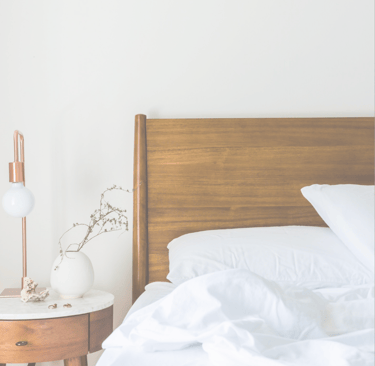11 WAYS TO HELP CLIENTS IMPROVE SLEEP
If sleep is a problem, in addition to helping clients finding the right resources or referring them to other colleagues who may help them with their sleep, we may also offer clients ways to potentially improve their sleep. Read this post to learn 11 ways that may help clients improve their sleep!
1/31/20213 min read


If sleep is a problem, in addition to helping clients finding the right resources or referring them to other colleagues who may help them with their sleep, we may also offer clients ways to potentially improve their sleep.
Here are 11 ways that may help clients improve their sleep:
Education
What regulates sleep? (Sleep drive, circadian rhythms, etc.)
Why do we need sleep?
Causes of sleep problems (explore thoughts, emotions, lifestyle, and physical factors specific to the client)
Identify maladaptive thoughts or beliefs (finding new and helpful ways to appraise situations)
Positive self-talk statements (self-empowering and self-efficacy focused)
Mindfulness Meditation (MM)
MM shown to reduce pain perception, increase pain tolerance, and improve mental wellbeing (anxiety, depression, etc.)
Reiner, Tibi, and Lipsitz found mindfulness-based interventions to decrease pain intensity for patients with chronic pain
Carlson & Garland showed MM to improve sleep quality and also reduce sleep and mood disturbance, stress, and fatigue in patients with cancer who often struggle with sleep
See #8 for tips on MM
Sleep drive
Stay active during the day (work, physical activity, hobbies, etc.)
Avoid naps (or limit to a short 15-min nap, earlier in the day) – naps reduce drive to sleep and we may not feel as tired at bedtime
Regular schedule
If possible, wake up and sleep at around the same time every day, including weekends! You may think it's silly not to sleep in during the weekends, but this may truly help to set your biological clock and maintain your circadian rhythm that regulates your sleep. Tips: Try waking up at the same time every day to start (or vice versa) if you cannot change both at the same time.
Light and darkness at the right time
Spend time outside and in natural light during the day
Dim lights in the evening/night
Avoid screen time (TV, phone, laptop, etc.) 30min-1hr before bed – screens emit blue light and our brains associate blue light with the morning, which reduces our sleepiness at night
Phone settings (and on tablets or laptops) reducing blue light on screens – be mindful that it is still best to have off-screen time before bed
Darkness in bedroom – helps us produce melatonin, a hormone that tells our bodies it’s sleep time!
Tips: light reflecting curtains, sleep masks, lights off, alarm clock with no blue/green light (best if clock emits no lights since even small amounts of blue or green light can be captured by the photoreceptors in our eyes and reduce melatonin production, which is a hormone that regulates our sleep-wake cycles)
Bedroom
Only for sleep and intimacy
Don’t bring work into bedroom – we start to associate our bedroom or sleep with work/stress, which makes it harder to sleep
Environment
Reduce noise: ear plugs, white noise machine or consistent background noise
Comfortable temperature (I personally heat up during the night time so I need to set the temperature in my room lower to sleep better)
Lightweight, loose-fit clothing
Supportive pillow and mattress (may consult a physiotherapist to learn more about what is considered supportive or not)
Sleep ritual
Relaxing bedtime routine
Tips: Diaphragmatic breathing, Progressive Muscle Relaxation, Box Breathing, relaxation yoga stretches, reading, relaxing music, Epsom salt bath, massage, listening to meditative or relaxation/bed-time story apps (you can find some of these techniques in my other blog posts)
Food and diet
Avoid eating 3-4 hours before bedtime (especially heavy meals and spicy food that may lead to gastric reflux or GI discomfort)
Avoid caffeine, alcohol, nicotine and too much fluid intake close to bedtime (all affect sleep quality and either a diuretic or stimulant)
Good nutrition and regular meals – consult a dietician or nutritionist
Avoid staying in bed if you’re struggling to fall asleep
Go to another room and do something soothing like one of the bedtime routines mentioned above
Avoid checking the clock and counting number of sleeping hours. Number of hours does not equal sleep quality. Stressing out and counting hours makes it even harder to sleep.
Seek professional help
Cognitive behavioural therapy (Vitiello, Rybarczyk, Von Korff, & Stepanski, 2009)
Psychotherapy
Hypnosis (for sleep improvement and relaxation)
Sleep therapy
Acupuncture (sleep and relaxation acupuncture points)
Naturopath (may offer supplements to aid sleeping)
Dietician
Physician (may offer sleep medications, or alternative therapies)
References:
Carlson, L. E., & Garland, S. N. (2005). Impact of mindfulness-based stress reduction (MBSR) on sleep, mood, stress and fatigue symptoms in cancer outpatients. International journal of behavioral medicine, 12(4), 278-285.
Janssen, M., Heerkens, Y., Kuijer, W., Van Der Heijden, B., & Engels, J. (2018). Effects of Mindfulness-Based Stress Reduction on employees’ mental health: A systematic review. PloS one, 13(1), e0191332.
Reiner, K., Tibi, L., & Lipsitz, J. D. (2013). Do Mindfulness‐Based Interventions Reduce Pain Intensity? A Critical Review of the Literature. Pain Medicine, 14(2), 230-242.
Vitiello, M. V., Rybarczyk, B., Von Korff, M., & Stepanski, E. J. (2009). Cognitive behavioral therapy for insomnia improves sleep and decreases pain in older adults with co-morbid insomnia and osteoarthritis. Journal of clinical sleep medicine: JCSM: official publication of the American Academy of Sleep Medicine, 5(4), 355.
http://healthysleep.med.harvard.edu/healthy/getting/overcoming/tips
https://sleep.org/articles/learning-relax/
https://sleepfoundation.org/sleep-disorders-problems/pain-and-sleep
https://sleepfoundation.org/sleep-topics/sleep-drive-and-your-body-clock
